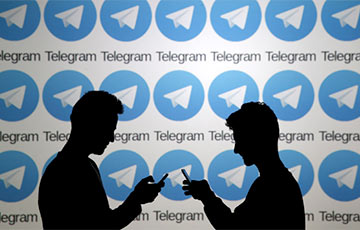How and Why Lukashenka Lost the War to Telegram Channels
6- 9.12.2020, 13:20
- 42,121

The dictator made a wrong bet.
Last week, another battle took place between the Belarusian authorities and telegram channels in service with the public, udf.by reports.
On December 3, Deputy Head of Lukashenka's Administration Andrei Kuntsevich said that the authorities are concerned about Belarusians' large involvement in "destructive Internet communities." According to him, more than 1,000 telegram channels have been created to coordinate the country's protest movement.
The official said that "we really need new solutions, including at the legislative level, to regulate the work with content in social networks and messengers, which for many replace traditional sources of information."
On December 4, Aliaksandr Lukashenka commented on "rumors and fakes spread by telegram channels before his arrival in Vitsebsk."
On December 6, during one of the Sunday protests in Belarus, problems arose with access to the messenger mentioned above. The problem, however, was solved when a proxy server or VPN was turned on.
The editorial office tells how Lukashenka fought with telegram channels in the last year. It states that despite the next battles, the war on his part has long been lost.
When Lukashenka got hooked on Telegram channels
Lukashenka fully appreciated the influence of the messenger mentioned above in 2019, when the Russian authorities forced him to deepen integration, and Lukashenka tried to get subsidies without signing road maps.
So, at one of the meetings with Vladimir Putin, Lukashenka directly said that he had studied the messages on the telegram channels.
Later, Lukashenka told how he argued with Putin about the origin of posts in the popular messenger:
"The last time we met with Medvedev and Putin, the three of us touched on these topics. He said that this was not us. I said: "How could it be "not us" if a particular person is behind this channel?" And I say famous surnames that hate fiercely or, for money, they begin to make up things about us."
Lukashenka's wrong bet
On the one hand, in the first half of 2020, Lukashenka was aware of Telegram channels' influence and popularity. At one of the meetings, he said that the influence of telegram channels, blogs, social networks was at least equal to traditional media.
On the other hand, Lukashenka said straight that he is not going to compete with the above-mentioned resources.
"They tell me a lot that we are losing to Telegram channels and so on. Yes, there is probably more dirt there than our votes for the official authorities. However, one can't say that the information is not enough. But I thought that we'd not use PR and start creating some kind of telegram channels and throwing in some half-yellow information in order to be present there. Probably, this is not our way," Lukashenka said in April.
As a well-known retrograde, Lukashenka continued to live in the past: he announced the idea of creating a Belarusian analog of the Euronews TV channel and proposed to deal with competitors in the form of telegram channels in a well-known way.
In the spring, Lukashenka instructed the KGB chairman to "go through" websites and telegram channels to cleanse fakes on the topic of coronavirus. The authorities had control over the traditional media, but it turned out to be not so simple with the messenger.
The extramural controversy before the presidential election
Until August 9, Lukashenka conducted extramural polemic with telegram channels, regularly responding to critical opinions that appeared there. For example, he reacted to reproaches for holding the parade on May 9 amid the coronavirus pandemic and reluctance to transfer schoolchildren to distance learning.
As the elections approached, Lukashenka began to comment on the successes of his political opponents.
In his message to the people and parliament on August 4, Lukashenka was indignant:
"Over the past months, social networks and telegram channels have been flooded with nonsense, dirt, shameless lies. People have lost all conscience."
Yet he, apparently, did not fully realize that he had already lost the war with technology that united society.
Heavy post-election hangover
With the start of mass protests in the country, the authorities made another big mistake: they blocked the websites of independent media outlets; as a result, their audience spilled over to Telegram channels, where they do not follow journalistic standards.
After the elections, Lukashenka finally realized the full power of the messenger. And he concluded that the demonstrators could effectively coordinate their actions with the help of telegrams.
"You see: a square was drawn in a well-known channel on Sunday - go there. They went. They stood in this square, they drew another one - go there, and then go to the Palace of Independence. This is how they manage," Lukashenka was indignant.
In September, in an interview with Russian propagandists, the usurper demonstrated his powerlessness against technology.
"Do you have the ability to block Telegram channels? No one has, not even those who invented this whole web, the Americans. Even if the Internet is removed today, these Telegram channels will work from Poland," Lukashenka stated.
After that, the authorities took and continue to take measures available to them to counteract the telegram channels, although it has long been obvious that they lost the war.









